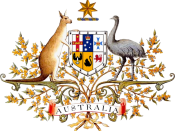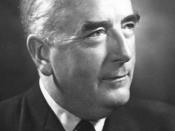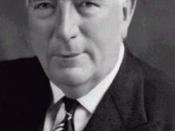Page � PAGE �12� of � NUMPAGES �12�
Australian Studies Major Essay
Cormac Griffin
Candidate Number: A1177407
What are the principal philosophies of the Liberal Party? Why had the Liberal Party been so electorally successful over the years? Why did it lose the last election?
The Liberal Party of Australia was founded in 1944. Subsequently, it has become the most electorally successful of all Australian political parties: it has held political power at the national level for just over two-thirds of the sixty four years since 1944 and, when not in government, has always been the main opposition party. A similar picture, though with obviously varying lengths of time in government, can be found at the state level. In short, Robert Menzies brain child has been extremely successful. This essay analyses and explores the principal philosophies of the Liberal Party to assess why it has been so electorally successful over the years.
Similarly, it discusses the evolution of these philosophies which, arguably, was the key factor underpinning the crushing loss of power in the federal election of 2007, an election that, among other outcomes, saw the sitting Prime Minister loose his own seat in Parliament. The essay commences with a short overview of the evolution of the Liberal Party.
The formation of the Liberal Party of Australia occurred after a three-day meeting held in a small hall not far from Old Parliament House in Canberra in 1944. This meeting was initiated and organised by Robert Menzies, the then Leader of the United Australia Party. Menzies had already served as Prime Minister of Australia (1939-41), but he strongly believed that the very fragmented, non-Labor parties needed to unite to present a strong, unified alternative government to the Australian people. Eighty men and women from eighteen political parties and organisations attended the...


